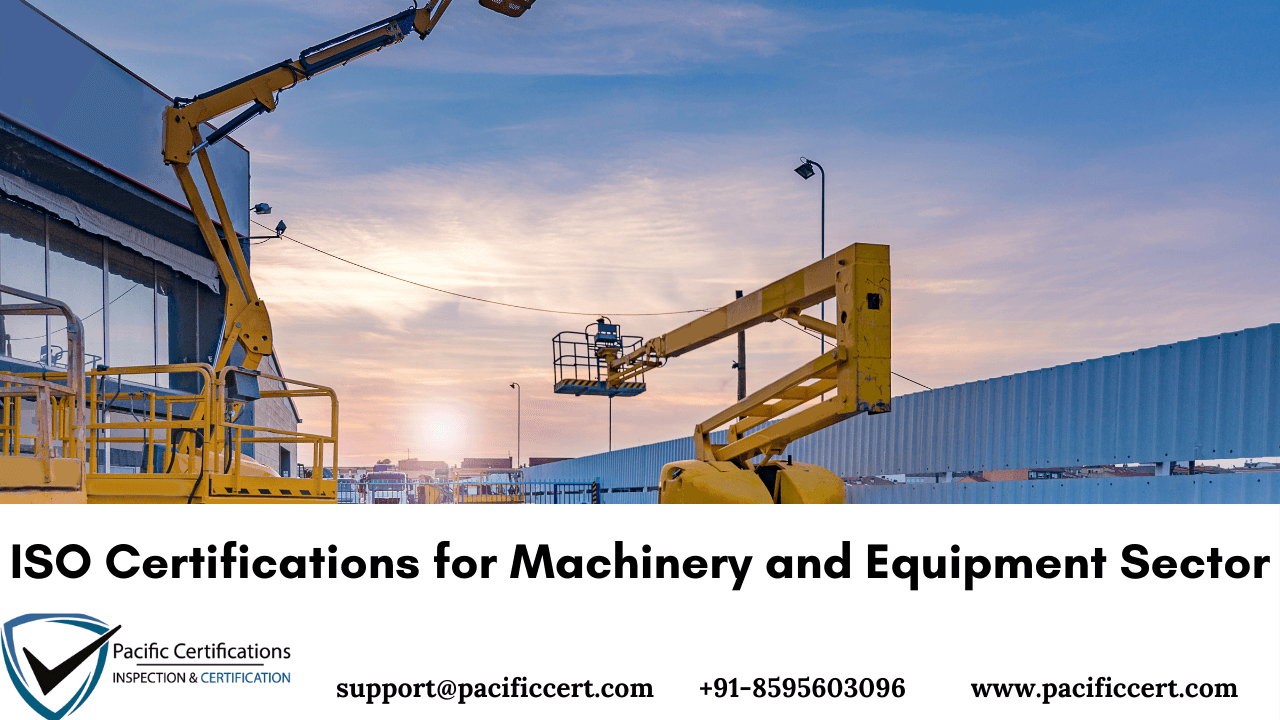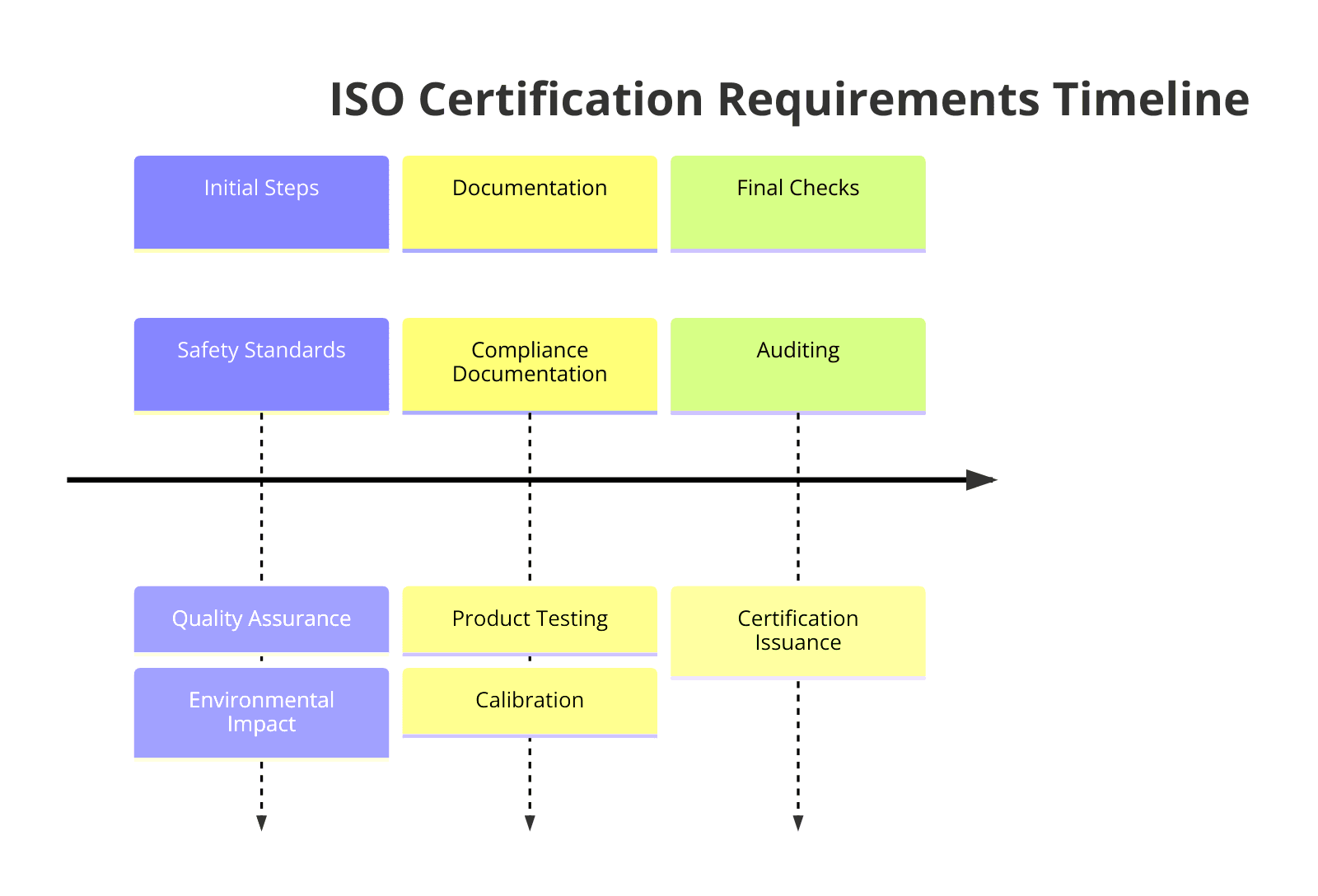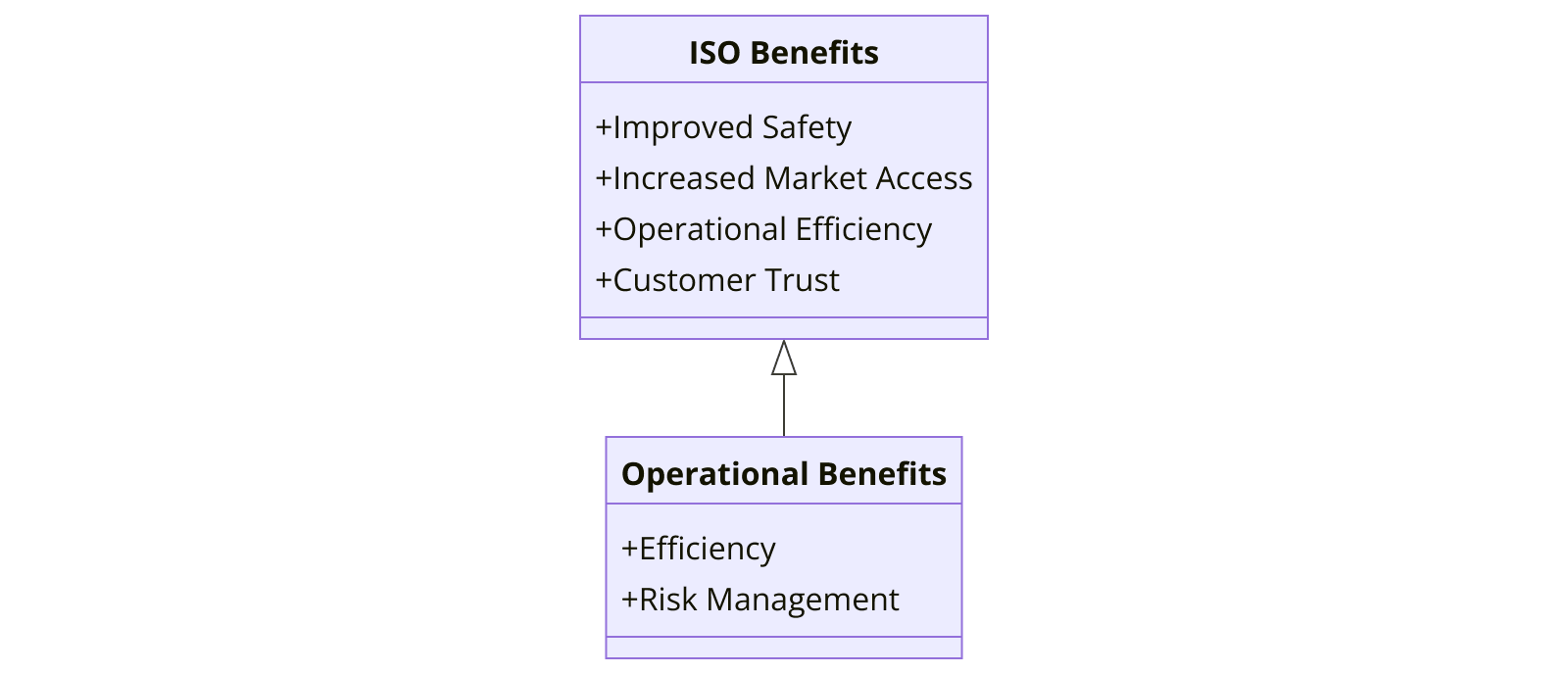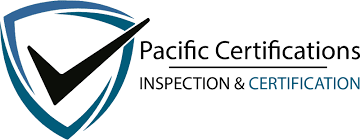ISO Certifications for Machinery and Equipment Sector, Requirements and Benefits

Introduction
The global machinery and equipment industry is one of the backbones of manufacturing and infrastructure development, covering from construction equipment to heavy-duty systems. The market is projected to exceed USD 6.5 trillion by 2030, driven by infrastructure growth, automation, and increased demand for energy-efficient equipment.
However, this sector faces challenges including product safety regulations, environmental compliance, and global competition. ISO certifications help machinery and equipment companies demonstrate compliance and meet international market access requirements. From safety and environmental impact to quality assurance and energy efficiency, ISO standards provide structured frameworks to guide manufacturers and suppliers.
Quick Summary
The article outlines how companies manufacturing machinery and equipment can leverage internationally recognised standards to ensure quality, safety, efficiency, and compliance. It identifies key standards such as ISO 9001:2015, ISO 14001:2015, ISO 45001:2018, ISO 12100:2010, functional safety norms like ISO 13849 / ISO 62061, as well as energy, information-security and business-continuity standards. These standards help manufacturers standardize processes, reduce defects, manage energy and environmental impact, ensure worker and machine safety, and secure data. Achieving ISO certification enhances regulatory compliance, customer trust, global market access, operational efficiency, and long-term sustainability — positioning firms for competitive growth in a rapidly evolving machinery and equipment industry.
In the machinery and equipment sector, safety, quality, and compliance are the foundation of trust between manufacturers, governments, and customers
Applicable ISO Standards for Machinery and Equipment
ISO (International Organization for Standardization) certifications set specific guidelines and requirements for businesses across various industries, ensuring that their processes, products, and services are efficient and of high quality. Below are few of the relevant standards to Machinery and Equipment industry:
Key ISO standards for machinery and equipment include:
ISO 45001: Occupational Health and Safety Management Systems
ISO 13849-1: Safety-related Parts of Control Systems
ISO 12100: Safety of Machinery – General Principles for Design
Each of these standards plays a crucial role in ensuring that machinery is built and maintained with high safety and quality standards.
For any assistance in obtaining ISO certifications for your machinery or equipment, contact us at [email protected].
What are the requirements of key ISO Standards for Machinery and Equipment Industry?
Each ISO standard has unique requirements, yet all aim to improve safety, quality, and performance. The common standards and their mandatory requirements are below:

ISO 9001:2015 Quality Management System (QMS)
The ISO 9001 certification is a global standard focused on ensuring consistent quality in products and services. For machinery and equipment manufacturers, ISO 9001 ensures that the company follows well-documented processes that minimize defects and meet customer requirements.
Key Requirements
A systematic approach to quality management
Continuous improvement through internal audits and reviews
Process standardization to improve efficiency and product consistency
Customer satisfaction as a primary focus
ISO 14001:2015 Environmental Management System (EMS)
ISO 14001 is a globally recognized standard for environmental management. This standard helps organizations minimize their environmental impact and continuously improve their environmental performance.
Key Requirements
Development of an environmental policy
Identification and management of environmental impacts
Implementation of sustainable resource use and waste management
Compliance with legal and regulatory environmental requirements
ISO 45001: Occupational Health and Safety Management
ISO 45001 is the leading international standard for occupational health and safety management systems. It enables organizations to reduce workplace risks, ensure employee safety, and create a healthier working environment.
Key Requirements
Implementation of health and safety policies
Risk assessments to identify workplace hazards
Procedures for incident reporting and investigation
Continuous monitoring and improvement of workplace safety
ISO 12100: Safety of Machinery – General Principles for Design
ISO 12100 offers a risk assessment methodology for designing machinery to eliminate or mitigate hazards. This standard covers the general principles of machine design to ensure safety during operation, maintenance, and transportation.
Key Requirements
Hazard identification and risk assessment during the design process
Implementation of protective measures (e.g., guards, emergency stops)
Instructions and manuals for safe machinery operation
Continuous improvement and validation of safety measures
Tip: Start with ISO 9001 and ISO 12100 for quality and safety, then expand to ISO 14001 and ISO 45001 to strengthen compliance and sustainability.
What are the benefits of ISO Certifications for Machinery and Equipment?
ISO certifications for machinery and equipment offer a wide array of benefits to manufacturers and end-users. Whether your goal is improving safety or enhancing product quality, ISO certifications provide a reliable path toward achieving those objectives. Below are the key benefits:

Stronger compliance with national and international regulatory requirements.
Safer machinery design, reducing risks of accidents and liability claims.
Improved manufacturing efficiency, lowering defects and downtime.
Increased customer trust through independent certification of quality and safety.
Access to global markets where ISO compliance is often a prerequisite.
Reduced operational risks through structured safety and risk management systems.
Enhanced sustainability through energy and environmental management.
Long-term business growth supported by standardized practices and continual improvement.
Market Trends
The machinery and equipment sector is evolving with rapid automation, digitalization, and sustainability pressures. The global industrial machinery market is expected to grow at a CAGR of 5–6% through 2032, driven by investments in smart manufacturing, robotics, and AI-enabled equipment. Demand for energy-efficient and low-emission machinery is rising sharply as governments enforce stricter environmental regulations.
Functional safety is also becoming a key differentiator, especially in sectors like construction and agriculture where equipment hazards are significant. With machinery increasingly integrated with IoT and digital control systems, cybersecurity standards such as ISO/IEC 27001 are gaining importance. At the same time, global supply chain risks are pushing manufacturers to adopt ISO 22301 for resilience. These trends highlight how ISO certifications support not only compliance but also innovation, sustainability, and global competitiveness in the machinery and equipment sector.
How Pacific Certifications Can Help?
At Pacific Certifications, we are committed to helping machinery and equipment manufacturers achieve ISO compliance seamlessly and efficiently. Our expertise spans various ISO standards, and we work closely with your team to understand your business needs and provide tailored solutions.
Why Choose Pacific Certifications?
Our team of ISO certification experts offers personalized support throughout the certification process.
We assist in various ISO management systems, conducting audits and issuing certifications.
We understand that each organization is unique, so we offer customized certification packages that align with your specific operational goals.
We provide end-to-end services, ensuring a smooth and hassle-free certification experience.
If you need more support with any ISO certification for your Machinery and Equipment business, contact us at +91-8595603096 or [email protected]
Ready to get ISO certified?
Contact Pacific Certifications to begin your certification journey today!
Author: Sony
Suggested Certifications:
Read more: Pacific Blogs

